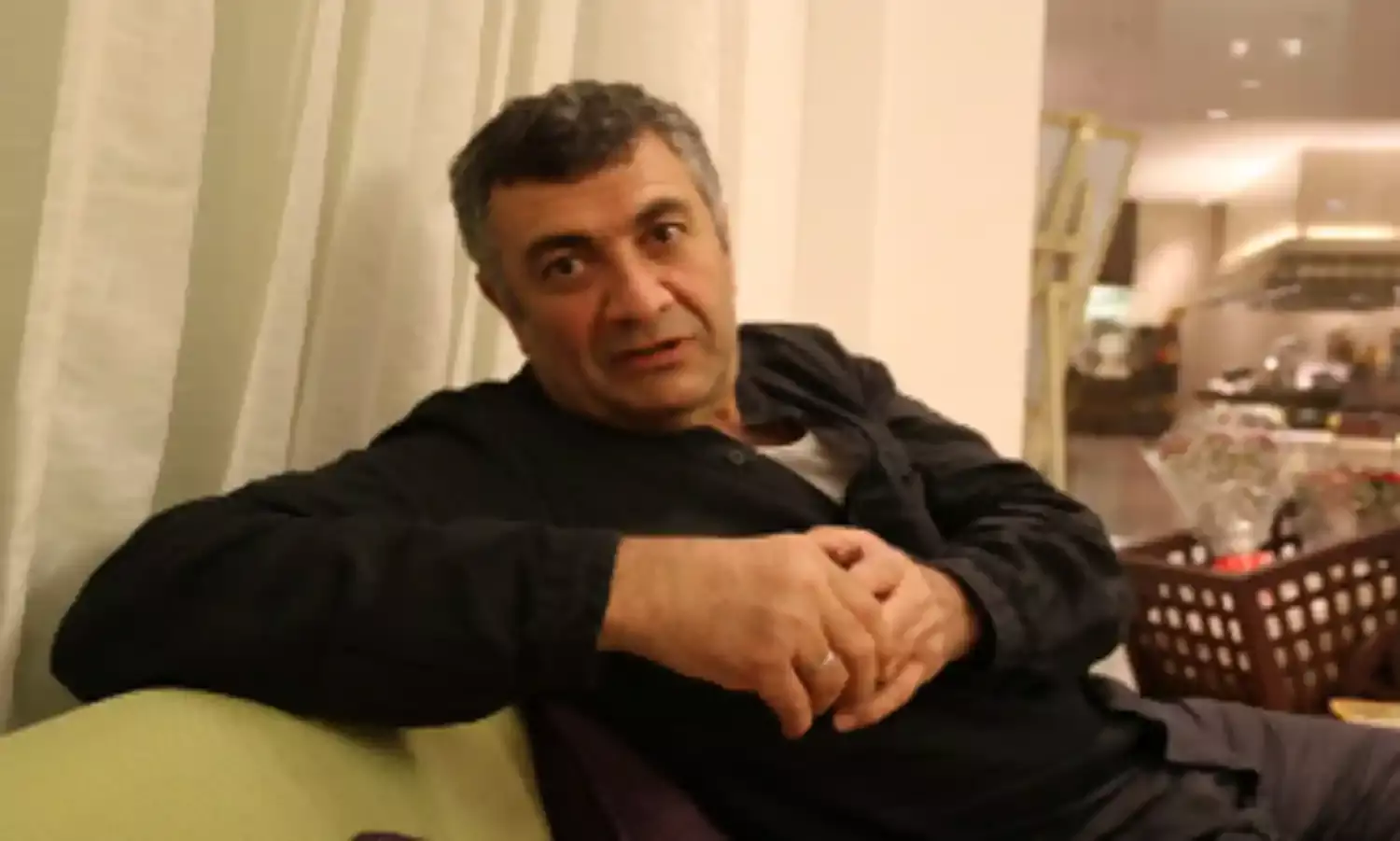'Cinema Is Powerful and Dangerous For Oppressive Regimes': Kurdish Director Mano Khalil
Khalil is in India with his film The Swallow

In his recent feature film, titled The Swallow, well-known Kurdish-Syrian filmmaker Mano Khalil uses the symbolism of the bird which always finds its way home.
Now settled in Switzerland, Khalil, through this movie expresses the yearnings of the millions of uprooted people all over the world to return to their homeland.
Khalil, an independent director and producer of movies and documentaries, was recently in Dharamshala Film Festival, Himachal Pradesh, India, to showcase his movie that has won several awards. The Swallow is about a young Swiss girl who goes back to her ancestral home in Kurdish part of Iraq, to look for her long lost father. The film, shot entirely on location, is as much a part of Khalil’s own life as a Kurd.
Khalil grew up in the 1960s in a small village in the Kurdish region of Syria. His father is from the Turkish part of Kurdish land and his mother from the Syrian part of Kurdish land.
As a child he was forbidden to speak his mother tongue, Kurdish in school. Says he, “I was forced to learn Arabic as a six-year- old. I was hit on the knuckles of my hand as a punishment for speaking my mother tongue Kurdish on the first day of my school. My mother would be furious when she saw the bruises on my hands. But she could not do anything.”
His next movie, tentatively titled, ‘Good Never Dies’ is about that child.
Khalil confesses that he has no plan to return to Syria. Switzerland, where he lives with his Greek wife and two children is very much his home now. But his stories and sensibilities as a filmmaker come very much from his past in Syria and his difficult journey to escape that past.
Having done that, today he is a filmmaker of the world. “To begin with my Kurdish Identity as a movie maker was very strong. I wanted to be the voice of the oppressed Kurdish People, in Syria, Iraq, Iran and Turkey. But over the years that has changed. Today I try to represent the voices of all the oppressed people of the world.”
He focuses on the good. An example is his documentary, the Bee Keeper. It is the story of Abrahim Gezer, a beekeeper who ran a successful business and lived a happy life in the mountainous Kurdish region of Turkey. Then one day his world was destroyed by the Turkish army and his family killed. As a 64-year-old he found asylum in Switzerland and here again he started his work of keeping honey bees.
Says Khalil, “Celebrating the good in society is also a good way to do your bit to defeat injustice and negative forces.”
For Khalil the option to pick up a gun and fight as a Peshmerga (armed Kurdish fighters) was real for him during his growing years. “But then I chose cinema. I did not want a gun in my hand. My weapon of resistance was Cinema. I undertook my fight against injustice by using Cinema and I think I am winning.”
He adds, “They wanted us Kurdish people to go as refugees to European countries and then loose ourselves in menial jobs. Basically, to lose our Kurdish identity and disappear.”
But Khalil had no intention of disappearing. Says he, “I wanted to use Cinema as a voice of the oppressed Kurdish people. But in time my cinema has evolved into the voice of oppressed people all over the world. Through my work I intend to bring out the sufferings of people. Cinema is a powerful and dangerous medium. That is why all oppressive regimes want to control Cinema. I know that well and I intend to use my Cinema as a weapon in the fight against oppression.” He had to go through a tough time to reach his current position.
Having done his graduation from Damascus, Syria, in 1987 Khalil went to study Cinema in erstwhile Czechoslovakia, and then went back to Syria to make his first documentary ‘The Place Where God Sleeps.’ It is a movie about the life of Kurdish people. He was promptly jailed by the Syrian regime for his troubles. “They said, how can you make a movie about Kurdish people as Kurdish people simply do not exist,” says he.
In 1996 Khalil landed in a refugee house in Switzerland, living there for three years and making his first movie, using just 66 Francs, a camera he had borrowed for three weeks and three actors including himself. The movie was about life in a refugee house, where people seeking asylum from all over the world were waiting to get their paper work completed so that they could work and live in Switzerland.
“It was not that there were people waiting with millions of Swiss Francs for me to come to Switzerland as a talented filmmaker and make films. I had a hard time establishing myself,” says he.
He was initially offered job as a taxi driver and when he insisted upon getting a job in a theatre, he was offered a job of cleaning toilets in theatre. But today Khalil has made a name for himself in the world of movie and documentary making. In The Swallow, he worked with a crew of 200 people. It is a long way from his first movie where he was the director, script writer, cameraman and one of the three actors too.
“My movies are not the ones you will enjoy while eating popcorn. They are not fantastical, happy, light or romantic movies. In a perfect world, I would have loved making such movies. My movies would make you think and make you carry something home. There is a lot of emotional turmoil and pain in the real world and I consider it my duty as a filmmaker to talk about that,” Khalil says.



